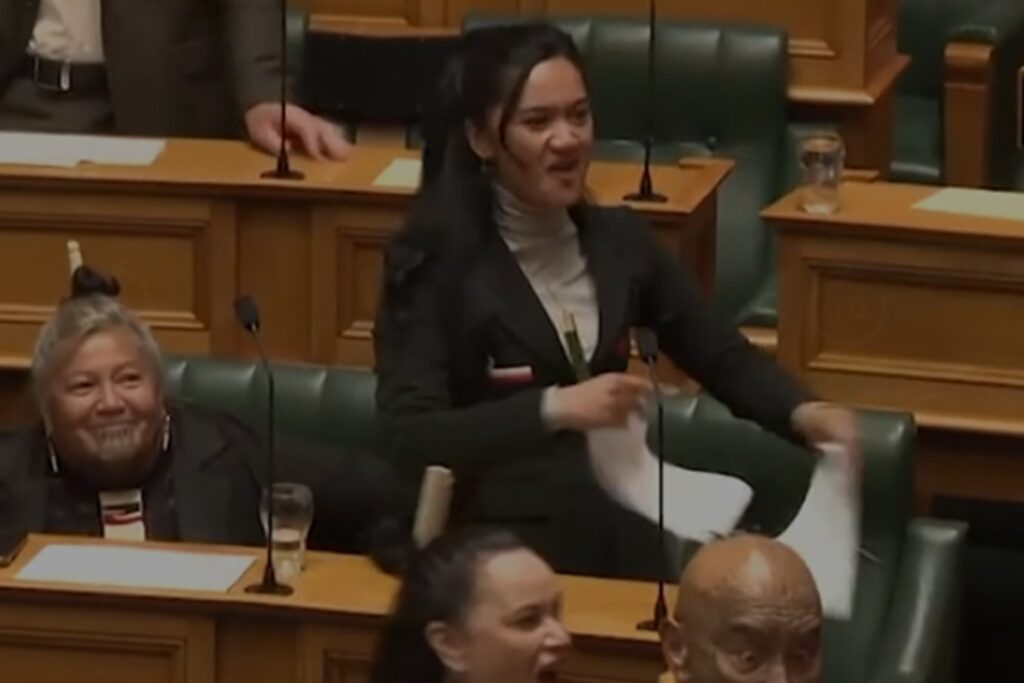New Zealand parliament has been suspended after a group of Māori MPs performed a haka in protest over a controversial bill seeking to reinterpret the country’s founding treaty with Māori people.
Te Pāti Māori MP Hana-Rawhiti Maipi-Clarke began the traditional ceremonial group dance after being asked whether her party supported the bill.
In response, Maipi-Clarke tore the bill apart and started the haka in a powerful statement with others throughout the chamber.
Maipi-Clarke, New Zealand’s youngest MP, was suspended from parliament and her behaviour was called disrespectful and grossly disorderly by the speaker.
At the same time, thousands of protesters have joined a hīkoi – or peaceful protest march – organised by a Māori rights group, that is continuing to make its way towards the capital, Wellington. It’s a 10-day march against the bill, which started in the far north of New Zealand.
First signed in 1840 between the British Crown and more than 500 Māori chiefs, the Treaty of Waitangi lays down how the two parties agreed to govern. It’s interpretation still guides legislation and policy today.
A landmark vote on this new bill that would reinterpret the document was set to start on Thursday before the protests spurred the suspension of parliament.
While New Zealand is often considered a leader in Indigenous rights, the ACT party who introduced the bill, has argued that the Treaty of Waitangi being woven into New Zealand laws is dividing the country by race. A junior partner in the ruling centre-right coalition government, the ACT wants the treaty to be legally defined as they say this will allow it to be more fairly interpreted through parliament, rather than in the courts.
Critics of the bill, however, say the legislation will divide the country and lead to the unravelling of necessary support for the Māori people. The core values of the treaty have been used in an effort to redress the wrong done to Māori during colonisation.
While the bill has passed its first reading, it’s unlikely to garner enough support to pass into law, as coalition partners are only supporting it through the first of three readings. Both parties– the National Party and New Zealand First– have said they won’t support it to become legislation.

